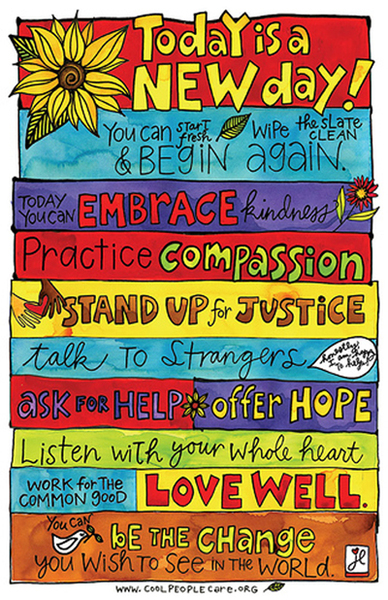 I didn't preach today. Brett, our associate pastor, who usually preaches once a month, did so today. I helped lead worship, but with my reduced role, it was easier for me to join in the worship and to listen for God in the Word read and preached. And so this seems like a good moment to reflect on the summer sermon series that is underway.
I didn't preach today. Brett, our associate pastor, who usually preaches once a month, did so today. I helped lead worship, but with my reduced role, it was easier for me to join in the worship and to listen for God in the Word read and preached. And so this seems like a good moment to reflect on the summer sermon series that is underway.We normally preach from the lectionary readings here at Boulevard Presbyterian, but last summer and this, we have chosen Bible passages to fit a theme. Last year we focused on the idea of call. This summer Brett and I are more tightly focusing our view, preaching on a specific call we believe is given to BPC: the call to be a congregation that reaches out, welcomes all, and exhibits Christian hospitality to everyone we meet. The unifying theme is "All God's Children."
Brett's sermon today - "All God's Children: Us and Them" - not only fit well into this theme, but it also pointed to the crucial challenge facing most traditional congregations. Many people my age and older grew up understanding their church life as an integral part of life in America. Church participation was simply one facet of good citizenship, of being a part of our local community. But those days are long gone, and congregational methods and styles well suited to that day may no longer serve us well.
Not only are Americans much less a culture of joiners than we were 50 years ago, but being part of a congregation is no longer a recognized part of what it means to be active in a community. Churches are no longer propped up by culture. Nothing closes on Sunday morning, and no one is dismissed in public life if he is not part of a congregation. All of this means that Christian faith now must present itself to the people around it in entirely new ways. If people no longer come to Church because they are supposed to, because everybody goes, etc. how do we communicate the faith to those outside our walls.
Actually, I see this as a huge opportunity for congregations to rediscover their calling and purpose. But this opportunity also brings a fear of the unknown. In both the opportunity and the fear, we have connections to those Jewish Christians of the First Century who began to reach out to Gentiles, to those they had long considered religiously unclean. The Church exploded across the Mediterranean world because they reached out, but they had to overcome much anxiety about losing their Jewish identities, about giving up old, familiar, comfortable ways of doing things. Our communities are filled with people looking for meaning and purpose who are not "church folks." And like those first Jewish Christians, we must learn to translate our faith into their, non-churched world. We may even have to give up some of our traditional church identities in the process, in the same way that the early Church gave up much of its "Jewishness" in the process of reaching out to non-Jews.
Our call to reach out, to find new ways to speak the faith to non-churched folks, is in no way a condemnation of our congregations. Rather it is the embracing of a new call for a new age. Neither is this a call simply to thow out everything traditional. Instead it is a call to serve God first and institution second. It is a call to think carefully about which traditions are essential, core parts of the faith, and which traditions are simply habits, the ways that we did things that were well suited to a particular time, but not necessarily to this one.
Now I am not naive enough to think that a summer sermon series is going to change any congregation overnight. But I do think it is one, important step in considering who we are and what we are called to do as the Church of Jesus Christ on Northwest Boulevard in Grandview Heights. It has certainly helped me wrestle with this question, and I hope it will be of some help to others who want, more than anything, to be faithful to Christ's call.
No comments:
Post a Comment